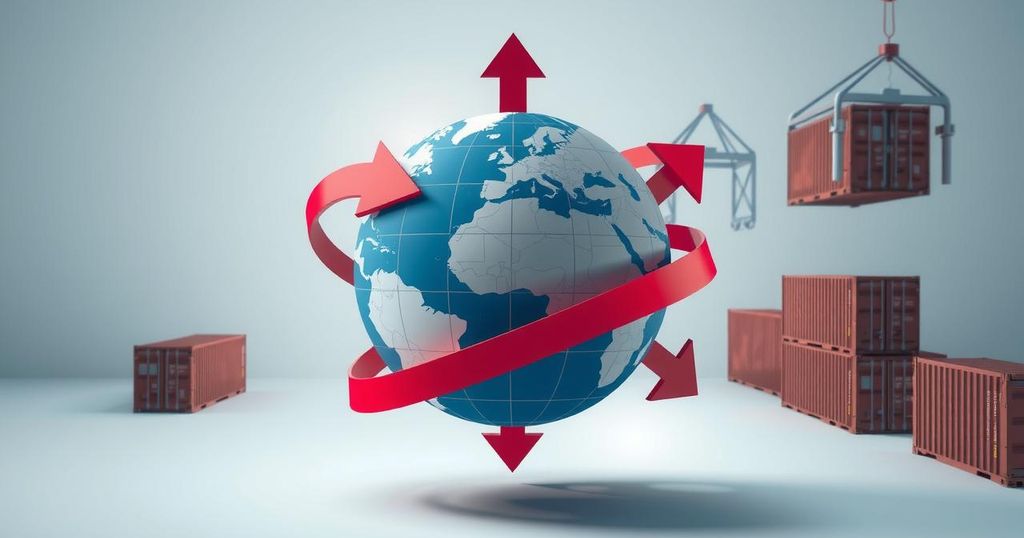Implications of Tariffs on Mexican Agricultural Relations and Farm Income Trends

Michael Swanson discussed the potential effects of President Trump’s proposed tariffs on Mexico, suggesting they could drive Mexico to enhance its import capabilities from South America. He noted that while farm income is rising, it benefits fewer farmers, partly due to larger farm consolidation. Additionally, he cautioned against economic cycles and emphasized the crucial role of crop insurance while promoting a personalized approach in agricultural services.
In Bonita Springs, Florida, Michael Swanson, chief agricultural economist at Wells Fargo, warned that President Trump’s proposed 25% tariffs on Mexican goods might prompt Mexico to develop port infrastructure to import agricultural products from Brazil and Argentina. He explained that the current lack of such facilities has restricted these imports to Mexico, but tariffs could incentivize their construction, ultimately impacting U.S. agricultural interests.
Swanson addressed concerns around farm income at the Crop Insurance and Reinsurance Bureau’s annual meeting, noting that while net farm income is on the rise, it is primarily benefiting fewer farmers. He pointed out that recent increases in farm income projections are linked to a $10 billion aid package, although farmers must invest significantly to benefit from this funding.
Furthermore, Swanson discussed the trend towards larger farms, noting that larger farmers may not inherently be better, but successful farmers often grow larger through increased land acquisition facilitated by government support. This situation poses challenges for smaller farms to compete for land.
He affirmed that livestock positively contributes to current net farm income and remarked on the stability of farm income over two decades, cautioning listeners about economic cycles. He reassured the audience about the absence of current recession indicators in the U.S., advising against overreacting to recession predictions.
Regarding ethanol, Swanson projected that electric vehicles could reduce ethanol demand by 2045, though this would not affect the markets in the near term. He emphasized the growing importance of renewable biodiesel in the agricultural sector.
In discussing the role of crop insurers, he encouraged a personalized approach to working with farmers rather than a generalized view of agriculture. Swanson highlighted that crop insurance is a crucial investment that protects farmers against losses, although some may forgo it during low-income periods.
Swanson expressed a preference for collaborating with expanding farmers rather than those struggling financially, stressing that land values enhance overall farm wealth. He reiterated that income and wealth are not synonymous within the agricultural context, with land representing a significant portion of farmers’ financial stability.
The discussions led by Michael Swanson during the Crop Insurance and Reinsurance Bureau meeting underscore critical issues facing the agricultural sector, particularly in light of potential U.S. tariffs on Mexican imports. The implications of these tariffs could lead to strategic shifts in import infrastructure, influencing agricultural trade relationships in North America and South America. Understanding the dynamics of farm income, the trend toward larger farming operations, and the role of crop insurance becomes essential for stakeholders in the agriculture and insurance industries.
In summary, Michael Swanson highlighted various agricultural challenges and trends linked to U.S. tariff policies, farm income distribution, and market dynamics. He urged stakeholders to recognize the increasing pressures on smaller farmers amid rising operational costs and the importance of strategic investments in land and infrastructure. A personalized approach in crop insurance and other agricultural services may better address the unique needs of individual farmers, especially in a fluctuating economic landscape.
Original Source: www.thefencepost.com








